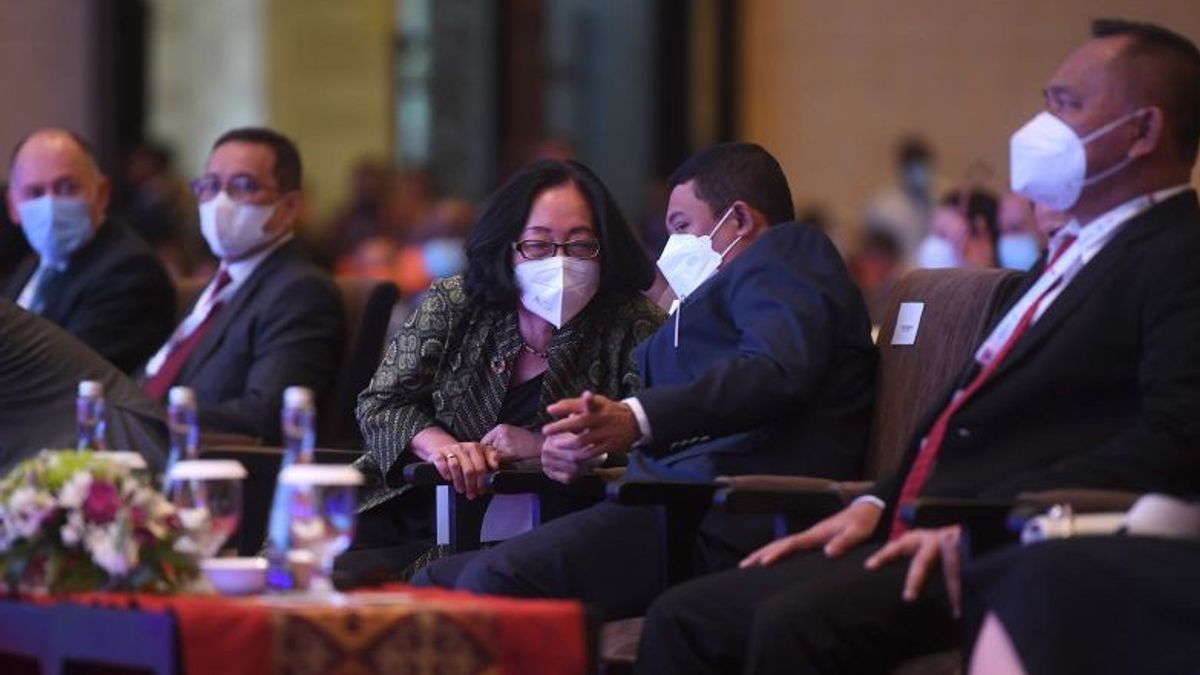BADUNG - The 7th Session of the Global Platform for Disaster Risk Reduction (GPDRR) in Bali on 23-28 May 2022 ended with the results of the "Bali Agenda for Resilience" to prevent the world from facing 1.5 times a day in 2030 disasters.
The United Nations meeting on disaster risk reduction was an "important call" to step up preventive measures and "stop the increasing impact and risk of disasters".
"More countries should think about resilience, and urgently adopt and improve early warning systems to reduce risks from the increasing number of disasters around the world," the UN forum concluded.
Over the course of six days, some 184 countries gathered in Bali to review efforts to protect people from the increasing dangers caused by climate change and other disasters around the world.
The 2022 GPDRR notes that only 95 countries report having multi-hazard early warning systems that notify governments, institutions and the general public of impending disasters, with very low coverage in Africa, a number of underdeveloped countries, and small island developing countries.
The UN Global Assessment Report on Disaster Risk Reduction (GAR) calls early warning systems a critical defense against disasters, such as floods, droughts and volcanic eruptions.
The report puts the probability of 560 -- or 1.5 disasters per day -- by 2030 based on current estimates.
The report comes after UN Secretary-General António Guterres called for the importance of a warning system to cover everyone in the world within five years.
"Early warning systems must include communities most at risk with adequate institutional, financial and human capacities to act on disaster early warning," says the GPDRR 2022 result document, known as the Bali Agenda for Resilience.
"The core recommendation (of this Bali Agenda) is to apply a 'Thinking about Resilience' approach to all investment and decision-making, integrating disaster risk reduction efforts with all governments and all communities," the Bali Agenda noted.
Bali's Agenda for Resilience, comes ahead of the 2022 International Day for Disaster Risk Reduction on 13 October dedicated to disaster early warning systems.
The meeting, which was the first UN international disaster forum since the start of the COVID-19 pandemic, also took place in conjunction with the Midterm Review of the UN Sendai Framework for Disaster Risk Reduction.
In light of the pandemic, the Bali Agenda highlights the need to re-evaluate ways to manage disaster risk and the design of policies related to disaster management as well as the types of institutional arrangements that need to be made at the global, regional and national levels.
"The current approach to (disaster) recovery and reconstruction is not effective enough in protecting development outcomes and in rebuilding a better, greener and fairer environment," the 2022 GPDRR results document stated.
"Transformative lessons from the COVID-19 pandemic must be applied before the door of opportunity closes," the document said.
The delegates gathered at the UN forum also shared information on the latest progress made since the last GPDRR event in 2019.
There is a 33 percent increase in the number of countries now developing disaster risk reduction strategies and reporting through the Sendai Framework Monitor, which measures progress towards global disaster risk reduction targets.
"Despite some progress, such as in the development of new financing mechanisms, and better links to climate change action, the data still show a lack of investment and progress in disaster risk reduction in most countries, particularly in terms of investment in disaster prevention," as stated in the Bali Agenda for Resilience.
"Less than 50 percent of countries reporting on achieving the Sendai Framework targets indicated that they had disaster risk information that was appropriate for prevention, accessible and actionable purposes," according to the Agenda.
The Bali Agenda for Resilience will be brought to the UN Climate Change Conference 2022 (COP27), the G20 events and the Sendai Framework Mid-Term Review activities.
The English, Chinese, Japanese, Arabic, and French versions are automatically generated by the AI. So there may still be inaccuracies in translating, please always see Indonesian as our main language. (system supported by DigitalSiber.id)








